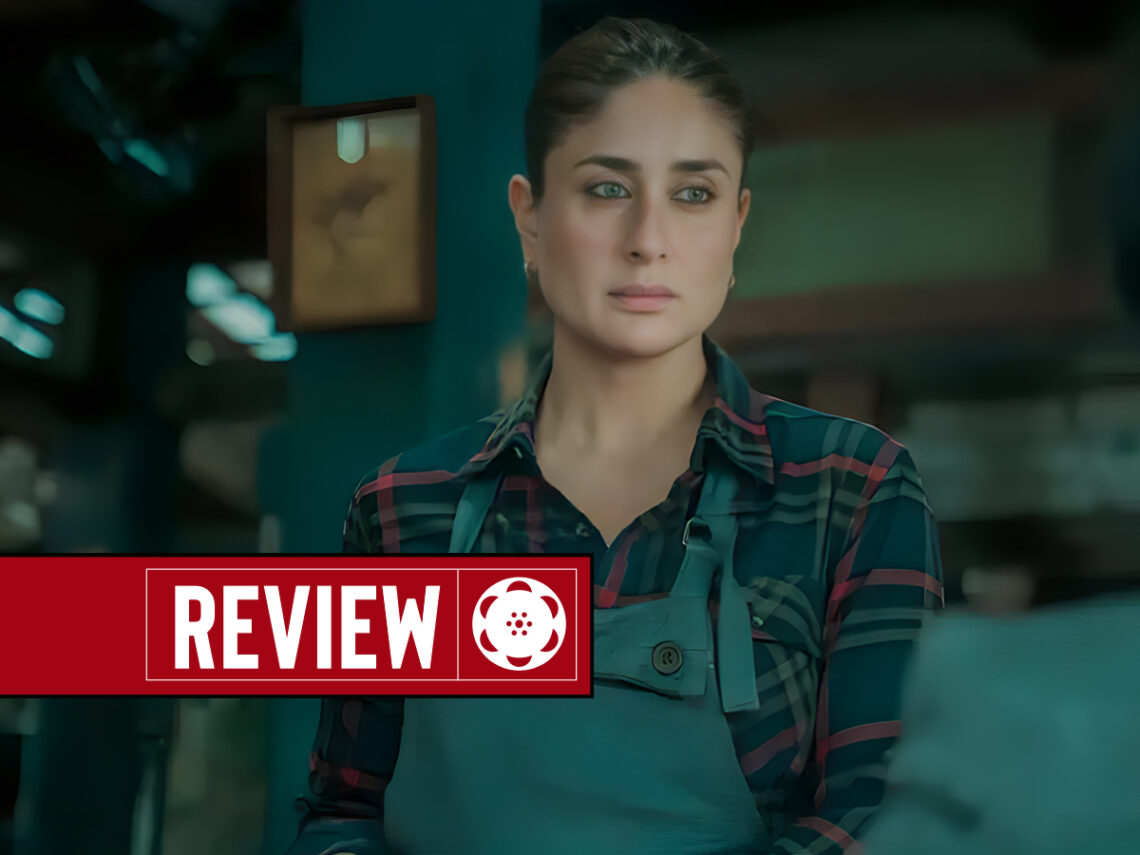Sujoy Ghosh’s latest offering, Jaane Jaan (transl. Beloved), a Bollywood adaptation of Keigo Higashino’s The Devotion of Suspect X, starts off like a sluggish engine on a frosty winter morning. For the first 50 minutes, you are left impatiently waiting for the narrative to pick up speed. Once it does for a few minutes, it again takes an unfortunate nosedive into more cinematic missteps.
The film’s premise—centred around a murder plot in the foggy backdrop of Kalimpong—is not entirely unfamiliar to those who may have read Higashino’s novel or tuned into either the Malayalam or Hindi version of the thriller Drishyam. Both films share source material, even though the Drishyam makers vehemently denied it. However, Jaane Jaan struggles to hold a candle to its predecessor.
One of the most jarring aspects of Jaane Jaan is its disturbing male gaze that objectifies its protagonist every step of the way. The character of Naren, played with perfection by Jaideep Ahlawat, embodies the quintessential creep in Ghosh’s hands. The other male lead, Vijay Varma’s Inspector Karan Anand, is no better.
There is a bit of virtue signalling about the hardships of single mothers, but there is minimal exposition for it. Despite her best efforts to rise above the flimsy material written for her, Kareena Kapoor Khan’s Maya D’souza is nothing more than a one-dimensional damsel-in-distress. But Khan tries, more than she has in a while. Her introduction, marked by Naren’s voyeuristic spying from his window as she shares a moment with her daughter, sets the tone for this unsettling objectification.
The camera is obsessed with capturing Maya through the lustful eyes of every man in the story. Karan, who is investigating Maya, can’t resist commenting on her attractiveness, constantly calling her “hot”. Naren, despite being given the role of the benevolent benefactor, has thinly veiled rage issues. In one unintentionally comical yet revelatory scene, he starts doing ju-jitsu in the middle of the road to work through his feelings towards her. Even when her abusive ex-husband, Ajit’s (played by Saurabh Sachdeva) leer meanders towards her posterior, the camera obediently follows suit.
This is the same issue that carries over from Lust Stories 2, where Ghosh directed the redundantly named short ‘Sex with the Ex’, which also featured Vijay Varma. The gratuitous sexualisation of Shanti, portrayed by Tamannaah Bhatia, is not only superfluous but also deeply disquieting. The camera persistently fixates on her anatomical attributes, and the quality of the writing remains markedly subpar, a lingering issue that persists in the Netflix howdunnit.
Of course, the unsettling male gaze is just one of its many shortcomings. The characters are all undernourished. Plus, the dialogues are crafted inadequately. There are films where the payoff is underwhelming, and then there is Jaane Jaan, where the buildup is nearly non-existent.
The main thrill of Jaane Jaan is pivoted around the perfect alibi. It somehow manages to cobble together a conclusion that the rest of the film sets up painstakingly poorly, leaving one to wonder whether the entire script was constructed just to arrive at that singular moment of revelation.
The film, bloated at almost two-and-a-half hours runtime, could have been edited down to a more crisp version but falls short of its potential mostly thanks to its dowdy writing and direction. The three powerhouse performers, who normally might never co-exist in the same spaces of Bollywood, and Avik Mukhopadhyay’s cinematography are wasted in spite of their efforts. When Kapoor, Ahlawat, and Varma are engaging to take in, that is largely due to them being such effortless performers. Ghosh really has no one to blame for bungling this one.
If you are really in the mood for a good Higashino adaptation from Bollywood, then tune into Vasan Bala’s Monica, O My Darling. The film, starring Rajkummar Rao, Huma Qureshi and Radhika Apte, is based on the 1989 Higashino novel Burutasu No Shinzou (transl. Heart of Brutus). Thankfully, Monica, O My Darling is available to stream on Netflix.
